Companies must implement solutions that integrate business processes as their company grows and the work environment of today's business world continues to evolve. It is critical to improve the customer experience. Everyone benefits from tightening and streamlining corporate processes.
Customer demands are met faster, and teams are more productive and satisfied. Keeping productive project management methods and maintaining great client connections should go hand in hand. As a result, any company should consider the benefits of a CRM project management solution.
You can pay attention to these powerful project management systems:- Salesforce — cloud-based CRM tool for companies of all sizes.
- monday.com — visual work management and collaboration application for numerous teams across the enterprise.
- ClickUp — an all-in-one project planning and tracking tool.
- Teamwork — communication and collaboration solution for project teams that focuses on assisting agencies, creative teams, etc.
- Smartsheet — the unique combination of classic spreadsheet functionality and advanced project management capabilities.
What Is CRM Software for Project Management?
What is CRM project management? CRM software is a business program that allows users to manage potential and existing customers' information and interactions in order to build company relationships. A customer relationship management system (CRM) enables businesses to interact with customers, keep them engaged, and create a wonderful experience so that they buy again, become loyal customers, and refer others. Project management software, on the other hand, promotes best practices and techniques for achieving project objectives quickly.
As a result, CRM project management software is a solution that combines two business applications into a single platform to unify data and achieve the common goal of servicing and keeping customers happy. CRM and project management help keep the emphasis on the client, while project management systems help define tasks, identify resources, and track progress.
[Related Article: 10 Best Free CRM Software]
What Are the Differences Between CRM Software and Project Management Software?
Let's look at the main distinctions between project management software and CRM software:
|
Parameter |
CRM |
Project Management |
|
Prime Features |
|
|
|
Advantages |
|
|
|
Examples |
HubSpot CRM, Salesforce, Microsoft Dynamics, and Zoho CRM |
Wrike, monday.com, Accelo, Insightly, ClickUp, Microsoft Project Management |
|
Average price |
$12 to $90 per user each month. The more premium tools might cost between $150 and $300 each month. |
$5 to $90 per user each month. The more premium tools might cost from $150 to $300 each month. |
Why use CRM with project management?
CRM platforms are intended to assist firms in managing client contacts and data by facilitating communication and behavioral tracking.
What do CRM and project management have in common?
The goal of project management is to make sure that assignments and projects are completed on schedule. Internal projects, product launches, and marketing campaigns are all possible. If you don't meet your deadlines, you risk losing the trust of the customers you've won.
In short, a CRM plays a significant role in project management, particularly when it comes to learning about and satisfying customers.
You can accomplish the following by including a CRM with project management:
- Ensure that PM teams, sales, and customer service are all on the same page.
- Allow sales and account managers to track the progress of a project.
- Allow clients to see and approve deliverables to improve quality control (convert relationships into partnerships)
- Improve the effectiveness of your marketing teams by providing information on where sales leads and accounts are in the customer journey (develop triggers and personalized content)
- While working on a project, you can observe customer activity.
- Persuade customers to use the software (create tasks, provide notes, etc.)
- Implement projects as soon as sales are made.
- Keep track of all of your contacts in one place.
Consider a small business that sells home electronics. Its marketing staff put a lot of effort into establishing a knowledge base with how-to instructions for installing systems.
However, there was one topic they didn't cover: troubleshooting. They were able to observe complaints about particular goods not working properly because of the CRM they implemented. As a result, they decided to write troubleshooting guides to assist them in resolving their issues.
Customer service was also given access to these guidelines so that they may email them during tech support calls. The marketing team used the CRM to keep track of who received the guidelines and sent follow-up emails asking for an update (and feedback).
Project management and CRM in one enhanced the company's reputation and contributed to additional positive feedback (and business).
Adaptable CRM System
4.3
Pros & Cons of using CRM with Project Management
We highlighted several pros and cons that should be taken into account before starting work with a CRM system for project management.
Pros
1. Improved data organization
Teams can more easily store, manage, and use information when it is needed if all client and project data is available on a single platform.
An all-in-one platform also provides a single source of truth, ensuring that your project and customer teams rely on the same information when making important decisions. They won't be as prone to errors or communication problems.
2. Saves costs and time
You won't have to pay thousands of dollars on licenses for many apps if you use one software for both CRM and project management.
Additionally, you won't need to invest additional time and resources in teaching your staff how to use multiple tools.
3. Interdepartmental coordination
Keep in mind that an all-in-one tool gives you access to a single source of reality. This helps create a common understanding of client requirements and project progress among your project, marketing, sales, and customer service teams.
It also enables you to create an integrated task management and reporting system that makes it simple for teams to communicate and work together.
The tool's reports, for instance, can be used by marketing teams to measure a customer's level of interest and evaluate whether they can close a deal with them. And if the answer is yes, you can start a brand-new project with the customer in mind.
Cons
1. Various timelines
The fact that the two processes rely on different timelines is one of the issues with integrating them.
Since it is a continuous process, a client relationship management project concentrates on long-term relationship building. On the other hand, project management is more temporary because projects have a beginning and ending dates.
If you don't want unrelated customer information to clutter up your project management system, it makes sense to keep the two separate.
2. Some all-in-one applications can be costly
While using a single tool to carry out several software tasks can be less expensive, some all-in-one solutions can be quite expensive.
However, keep in mind that other all-in-one programs provide effective free plans!
[Related article: Top 8 Small Business Project Management Software 2024 (Free&Paid)]
What are the different types of project management software?

Here’s our list of the main types of project management software you can find:
Individual
Individual project management software is used by a single project manager. It might be in the form of a spreadsheet or a simple application that has all of the project management software capabilities that the PM requires. It might be installed throughout the organization, but the different persons in this user interface have no link to one another.
Collaborative
Collaborative is one of the types of project management tools. Collaboration software works by bringing together entire teams; typically, there is a single source of planning data that can be accessed, read, and worked on by other project team members. To avoid stepping on one other's toes, this is frequently adjustable. These systems could be more low-tech, but that's fine if they meet the goals of a business. To function properly, software does not need to be spectacular. However, even if numerous users can access the project at the same time, these tools can only work on one project at a time. The inability to integrate data from other projects is a significant drawback for this application.
[Related article: 7 best agile project management tools in 2024 [For Flexible Teams]]
Integrated
For a company with multiple projects running at the same time, integrated software is the best project management software. Data from current and prior projects are linked in a single mainframe that can be accessed by several teams working on various projects. Each member of the team has access to project information.
These project management systems usually have the ability to integrate data and information, allowing various projects to be monitored in a dashboard-style interface. The server-based program allows access to be customized, allowing for permission-based login for each project or job. Portfolio management, job dependencies, time tracking, in-app communications, and scheduling are common features. Their user interface is usually friendly and allows for differences between various types of projects; they are even accompanied by instructions.
Best CRM Software for Project Management
Salesforce
Salesforce is a cloud-based customer relationship management tool for companies of all sizes. It’s one of the best CRM with project management. It's a single-source information platform that integrates sales, service, marketing, e-commerce, and other items. The CRM is scalable and flexible, and it can deliver applications to any business quickly.
Salesforce offers a CRM project management solution through its app-builder platform. Low-code builders with a point-and-click interface are available for swiftly creating modern cloud and mobile solutions. Alternatively, programmers can create project management apps in any coding language. This project management and CRM system also includes the AppExchange marketplace, which offers ready-to-use Salesforce integration components. There are dozens of project management apps and components available in the app store, both free and premium.
[Related article: How much does Salesforce cost?]
Wrike
Wrike is a flexible project management tool that can also be used as the best CRM and project management software. The PM program can be customized to track sales leads and manage projects more efficiently. When properly configured, the software can assist businesses in obtaining, organizing, and updating leads and contact information.
Wrike gives teams one place to keep track of all their contacts, project timelines, and communication. It simplifies the process of defining goals, prioritizing projects, organizing customer folders, delegating jobs, setting deadlines, and keeping track of leads and clients. Client list views, custom status, automated updates, intake forms, shared calendars, Gantt charts, and numerous reports are all useful features.
monday.com
monday.com is a visual work management and collaboration application for numerous teams across the enterprise. It's easy to set up, and it immediately provides users with a CRM that includes tools for capturing and managing leads, managing contacts and pipelines, creating customer projects, launching marketing campaigns, and tracking teams and tasks.
This all-in-one CRM and project management platform provides a drag-and-drop interface, unique automation, industry-specific templates, and sophisticated integrations to assist teams in creating an application that meets their exact needs. Its CRM project management solution ensures that project, marketing, sales, and support teams are all on the same page. It also improves visibility by allowing sales and account managers to see the project progress in real-time.
[Related article: 15 Best monday CRM Alternatives in 2024 (Free & Paid Tools)]
Insightly
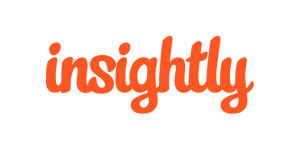
Insightly is another the best CRM for project management. It helps teams throughout the organization align by delivering consistent customer data that is useful for marketing, sales, project management, and customer service. It gives users all the information they need to construct a holistic perspective of the customer across the whole purchase lifecycle with an integrated approach.
With custom fields, objects, and apps, users can personalize conventional contact, lead, and opportunity management workflows. Dynamic page layouts, calculated fields, and lambda functions are also included. Users may swiftly convert closed prospects to projects, create milestones, clarify order details, verify inventories, and assign tasks using its project management with CRM features.
vTiger
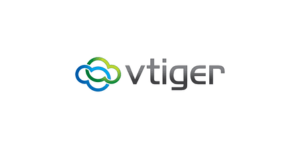
vTiger is a free and paid online CRM solution for small businesses, as well as open-source downloaded variants. It offers an easy-to-use UI that is intuitive and quick. Its built-in AI capabilities provide a full view of the customer and important insights. Many popular third-party programs can be integrated with the software.
vTiger CRM helps sales, marketing, and support desk teams streamline operations and improve performance. Users can swiftly develop projects connected to clients, deals, or cases using integrated project management tools. It has a Gantt chart and a Kanban board. Projects can be broken down into tasks and subtasks, assigned to team members, time spent on tasks tracked, and time data automatically pulled into invoices.
Accelo
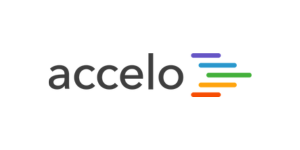
Accelo is a professional services CRM that runs on the cloud. Its automation helps service businesses increase productivity and profitability. With each client encounter, sales automation updates the CRM. It assists in the process and sends out notifications when things start to go wrong. Team schedules, customer records, a team mailbox, and automatic tracking and sharing are among the other features.
In one click, Accelo can turn any quote into a project. Whether working on sales leads, support issues, or campaign tasks, built-in project collaboration tools help teams meet deadlines. It contains Gantt charts that you can drag and drop, task management, expense monitoring, and a client portal. Automatic time tracking, customizable billing, and simple reporting are all included in the software.
ClickUp
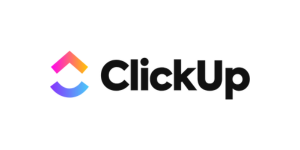
ClickUp is an all-in-one project planning and tracking tool, as well as a unified dashboard for teamwork and communication, and a wide library of project templates and project integrations.
This project management and CRM software combines adaptability and user-centered design. Its "Spaces" feature, which allows teams to customize their workspaces based on unique projects or departments, ensures focused collaboration. ClickUp's "Box View" is another distinction, giving managers an effective way to measure individual workloads and reallocate activities to avoid burnout.
Teamwork
Teamwork is a communication and collaboration solution for project teams that focuses on assisting agencies, creative teams, marketing teams, and other professional services.
Teamwork includes an "Everything" view that provides an overall view of all projects and tasks, easing monitoring and ensuring nothing falls through the cracks. Furthermore, the software's built-in time tracking function stands out, allowing you to effortlessly log hours, analyze where time is spent, and precisely invoice clients.
Asana
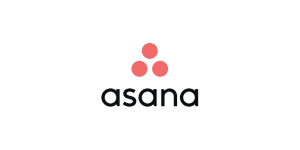
Because of its easy design and flexible task management, Asana will always be at the top of all project management tool lists. Asana's "Timeline" view is one of its distinguishing features, allowing teams to visually plan out every stage of a project, ensuring no nuances are forgotten.
Furthermore, Asana's "Workload" function provides a unique insight into the capability of team members, assisting managers in balancing job distribution and reducing burnout. This combination of visual project mapping and workload data provides teams with a competitive advantage when it comes to simplifying operations.
Trello
Trello distinguishes out for its simplicity, employing a card-based structure inspired by Kanban methodology. Trello's unique feature is its extremely visual and intuitive "boards," in which tasks are shown as movable cards, allowing for dynamic project modifications.
Each card can hold checklists, attachments, labels, and comments, making cooperation both transparent and engaging. Furthermore, Trello's "Power-Ups" feature supports integrations with a wide range of third-party apps, increasing its adaptability.
[Related article: Trello vs Asana: Which is the best option for project management?]
Smartsheet
Smartsheet stands out for its unique combination of classic spreadsheet functionality and advanced project management capabilities. It is ideal for various businesses that require a project management office as well as industry-specific capabilities, ranging from finance to construction.
Smartsheet provides adaptability to spreadsheet lovers as well as visual planners by integrating the familiarity of spreadsheets with dynamic project management tools. This balance of power and flexibility is one of the main reasons for its inclusion in top project management software lists.
Basecamp
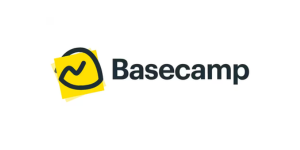
Basecamp divides work into projects, and you may include everyone who needs to be involved in each one. Every project has its own message board, group chat, to-do lists, and shared calendar. You can also set up automatic check-ins, which prompt team members to provide a status update.
It works effectively as a comprehensive cloud storage platform. Upload and distribute documents, files, pictures, and spreadsheets. Keep track of everything project-related by organizing your files.
Features of CRM Software for Project Management
When companies put money into one area of software, they may have to take money away from another. Consolidating procedures, on the other hand, can improve efficiency. As a result, CRM software with built-in project management tools can save firms money by allowing them to invest in a single software solution. Furthermore, teams use a single application to unify their company's data and operations, making it easier to use. Here are some key characteristics to look for in CRM project management software.
Centralized Data
CRM software nowadays typically contains comprehensive and up-to-date information for each customer. Project and task data are added to customer information in the best CRM for project management software, so teams know exactly where customer-focused projects are at. Teams can give consistent information to clients thanks to a single source of truth.
Ease of Use
CRM software that allows teams to manage projects and tasks should be simple to use and intuitive. Instead of working on the program, users need more time to work on tasks for customers. In fact, the software will take on some of the task of the users, allowing them to spend more time seeking leads, maintaining accounts, and assisting clients. With intuitive design and navigation, point-and-click tools, and drag-and-drop builders, this is achievable.
Streamlined communication
Businesses can eliminate silos and data inaccessibility by using a CRM and project management combined application with specialized communication or chat functions. Members of the team should be able to leave comments, attach documents, and join video calls without having to leave the tool. You won't have to switch between apps all day, which simplifies communication.
Visual project management
Visual project management helps teams better comprehend timeframes, tasks, and deadlines. All you’ll need is a single glance to see how projects and customer relationships are progressing.
Collaboration
CRM software with collaboration features can help businesses interact more quickly. Tools that enable teams to share information, leave comments on assignments, and even invite external partners and clients for evaluation and approval can help speed up the process and guarantee that the right product or service is delivered on time.
Process Integration
The majority of the work may be completed after the user performs the deal with the customer. As a result, seamless integration of the sales or service process with the project management process is critical. Without duplicating data entry, CRM software should be able to convert an opportunity, deal, or issue into a project or task.
Visual Tracking
Teams using CRM software are familiar with pipelines. In a similar way, teams should be able to track project tasks in a visual way. Whether using a web app, desktop, or mobile device, teams can readily give updates to one another, as well as tell customers how their inquiries, requests, or issues are coming along.
Customization
Customization might include everything from project templates and custom fields to new workflows and app development. Customization can help improve operations, provide additional insight, and enhance the client experience.
Dashboards and Reports
The creation of dashboards and reports should be simple. These should include details on project status and progress, task completion and details, and other marketing, sales, and service-related metrics. Charts, graphs, and plots should be available to users as options for visualizing their data.
Project Templates
Without project management training, marketing, sales, and service teams may be required to quickly set up projects. Users can select configurations, processes, or workflows that are comparable to those they already use from project templates in CRM software. Teams should be able to simply change and save these templates for future usage.
Automation and Integration
The majority of CRM and project management now include automation tools that notify and remind users of critical events for their leads and customers. CRM with task management functions, such as managing recurring tasks or reminding users of deadlines and milestones, should be included in automation. Other productivity tools and apps should be directly integrated into the software.
Conclusion
It can be difficult to serve both the client and the employee at the same time, but it doesn't have to be. Take some time to analyze your current CRM and project management solutions. Examine whether they are assisting both staff and consumers in the manner that they should be.
A CRM project management system is what will actually move the needle if you desire a seamless client experience. Discovering what CRM can accomplish for your customers and internal teams could lead to some previously undiscovered ways to improve satisfaction, productivity, and growth.

-Mar-27-2024-11-01-44-0415-AM.png?width=300&height=150&name=%D0%94%D0%B8%D0%B7%D0%B0%D0%B9%D0%BD%20%D0%B1%D0%B5%D0%B7%20%D0%BD%D0%B0%D0%B7%D0%B2%D0%B8%20(4)-Mar-27-2024-11-01-44-0415-AM.png)



.png?width=140&height=140&name=Noah%20(1000%20x%201000%20px).png)



